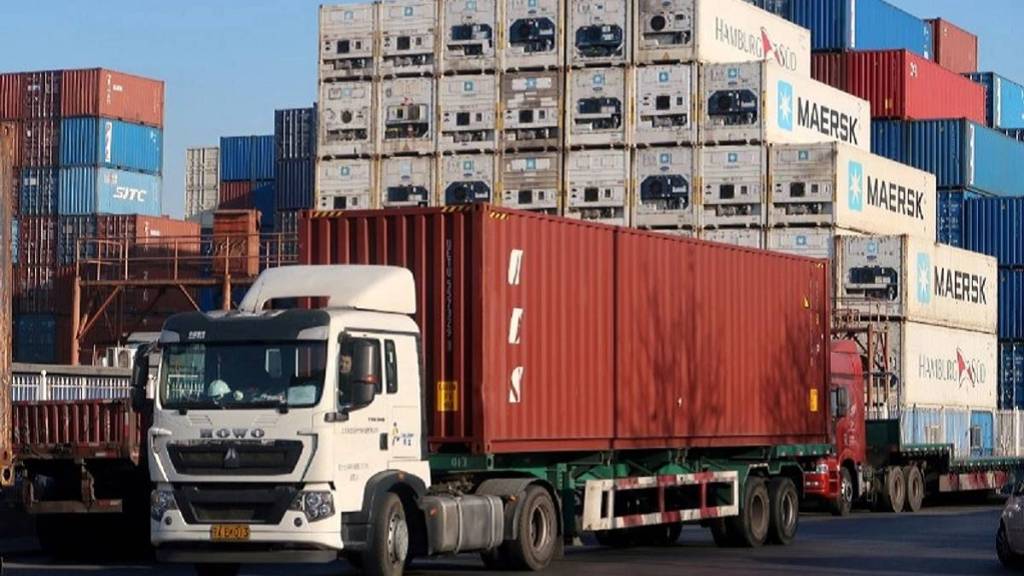By Nitish Rai
Whatever reaches your doorstep today – the daily essentials, fresh fruits, crisp vegetables, and an array of goods – carries with it an invisible yet undeniable burden: the long, intertwining trail of emissions. These emissions, known as Scope 3 emissions, weave themselves intricately into the tapestry of the value chain that fuels the manufacturing industry.
Emissions can be broadly categorised into three scopes: Scope 1, Scope 2, and Scope 3. To put it simply, in the context of an organisation with a factory, Scope 1 emissions refer to the emissions resulting from the activities of their own factory. Additionally, the organisation relies on raw materials and components from their suppliers, leading to Scope 2 emissions from their suppliers’ factories.
Further, when these materials are transported and distributed to customers, the emissions generated during this process fall under Scope 3. Scope 3 emissions encompass a vast realm of indirect greenhouse gas emissions, stretching far beyond the boundaries of individual organisations. They represent the environmental impact incurred throughout the lifecycle of a product but are generated from sources not owned or controlled by the company.
The supply chain serves as the lifeline of the manufacturing industry. It is crucial for the manufacturing industry as it connects raw materials, production processes, and final products. But it is particularly important for the automotive industry to adopt sustainable practices as the industry operates within a complex supply chain that involves multiple stakeholders, including suppliers, manufacturers, and distributors.
Furthermore, the automotive industry has a direct impact on the quality of air, water, and overall environmental health. As a result, the need for a paradigm shift toward sustainable practices cannot be overstated. By prioritising green logistics, manufacturers in India can unlock the potential to not only reduce their carbon footprint but also achieve operational efficiency, cost savings, and resilience in the face of environmental challenges.
The challenges facing a sustainable supply chain in India’s manufacturing sector are multifaceted. From transportation inefficiencies and outdated warehouse management practices to excessive packaging waste, the road to sustainability may seem daunting. However, it is within these challenges that opportunities lie—opportunities to innovate, collaborate, and create a greener and more sustainable future for all.
India is taking a leap to lead the Scope3 emission abatement with Unified Logistics Interface Platform (ULIP). The government’s initiative of ULIP has provided an excellent architecture and platform for the organisations to abate their transportation emissions effectively. One of the key issues addressed by ULIP is to provide the visibility of the type, age and emission norms of any truck and by appropriate algorithms real-time emission evaluation and details, organisations can plan their freight procurement and supply chain KPI’s keeping sustainability at the center.
ULIP has democratised this architecture in a way that all manufacturers small to large, all transport partners of varying sizes can now understand the impacts they are creating through their actions of transportation and distribution emissions.
The industry as a whole can adopt additional measures and strategies to foster green logistics. Many of these initiatives are already being implemented and can be further expanded upon.
Leveraging technology and digitalisation
Adoption of technologies such as Internet of Things (IoT), artificial intelligence (AI), and advanced analytics can also enable real-time monitoring, predictive maintenance, and route optimisation. These advancements help reduce fuel consumption, minimise emissions, and enhance overall operational efficiency.
Collaboration and integration of stakeholders
To effectively promote green logistics, collaboration and integration among stakeholders are essential. This can lead to the identification of innovative solutions and the implementation of sustainable strategies that address common challenges across the logistics ecosystem. By collectively establishing benchmarks and sustainability criteria, stakeholders can ensure consistency and accountability in adopting and implementing sustainable measures. This fosters trust among stakeholders, facilitates knowledge sharing, and drives the industry forward on a path towards greener logistics.
Enhancing efficiency through modal shift
One of the key ways the Indian manufacturing and supply chain industry can boost green logistics is by encouraging modal shift. Modal shift involves transitioning from road-based transportation to more sustainable alternatives such as railways, inland waterways, and coastal shipping. By leveraging these modes, companies can significantly reduce carbon emissions associated with long-haul transportation.
The Indian manufacturing and supply chain industry plays a vital role in the country’s economic growth, and embracing green logistics practices is crucial for sustainable development. By encouraging modal shift, leveraging technology and digitisation, and aligning with the National Logistics Policy, the industry can significantly reduce its environmental impact while achieving operational efficiency.
The author is CEO and Co-Founder of FreightFox.
Disclaimer: Views expressed are personal and do not reflect the official position or policy of Financial Express Online. Reproducing this content without permission is prohibited.




















